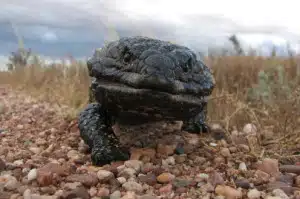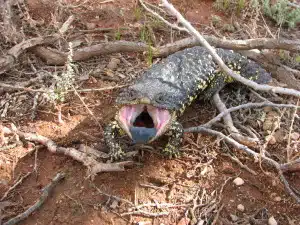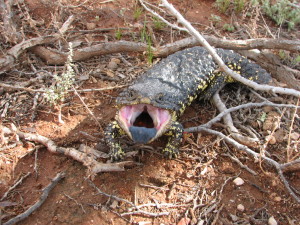
The conventional wisdom is that family relationships form an important part of social interactions – in both humans, and many other animal societies – as many benefits are gained by aiding family first.
“We found that bobtail lizards of the opposite sex spent less time together if they were more related to each other,” explains Stephanie Godfrey. “This has obvious implications for avoiding incest.”
Stephanie used small GPS loggers to trace their interactions, registering who interacted with whom – like Facebook for lizards – and then collected DNA samples from the lizards to work out who was related to whom.
Males avoiding their brothers, could actually be an act of brotherly love, as most male-male interactions in these lizards are of an aggressive nature.
But how do lizards know who they should associate with? Stephanie says that lizards have well developed olfactory systems, so it is possible they can ‘sniff out’ their relatives, and know who to avoid just by scent.
“Family is still important, but not in the way we normally think about it,” says Stephanie. “Lizards may benefit from family relationships by avoiding their relatives – to avoid mating and costly fighting with relatives.”
Stephanie presented her research at Fresh Science WA 2015. Fresh Science is a national program that helps early-career researchers find and share their stories of discovery. Over 20 early-career researchers nominated for Fresh Science WA, which was held at the Western Australian Museum (training) and Brisbane Hotel (public challenge event) and was supported by the Western Australian Museum, Curtin University, Edith Cowan University, Murdoch University, the University of Western Australia and the University of Notre Dame, Australia.
Contact: Stephanie Godfrey, Murdoch University, s.godfrey@murdoch.edu.au







 Fresh Science is on hold for 2022. We will be back in 2023.
Fresh Science is on hold for 2022. We will be back in 2023.